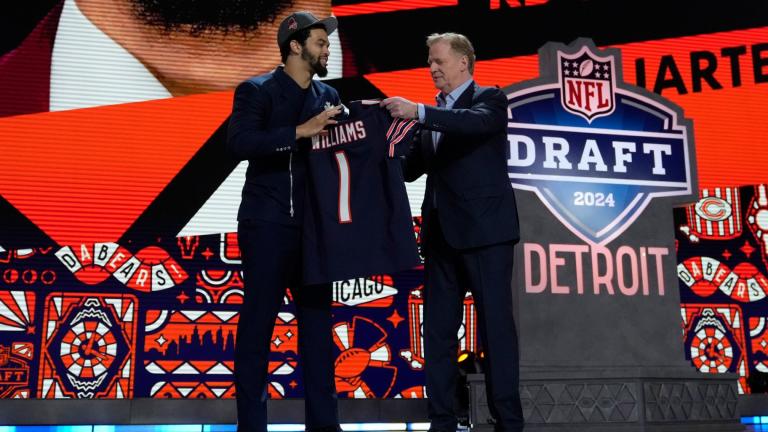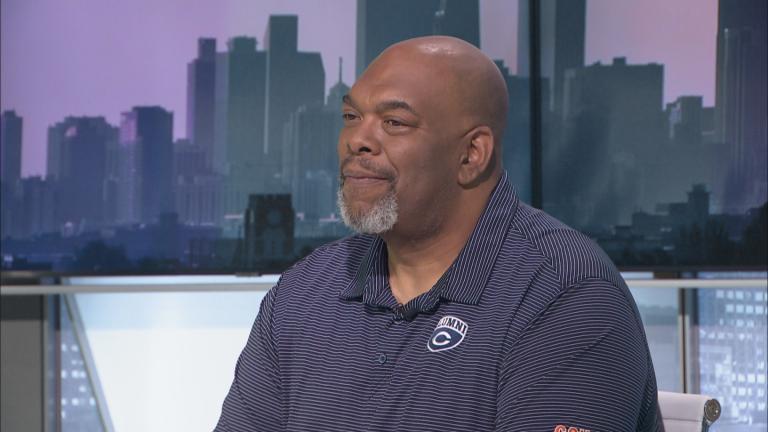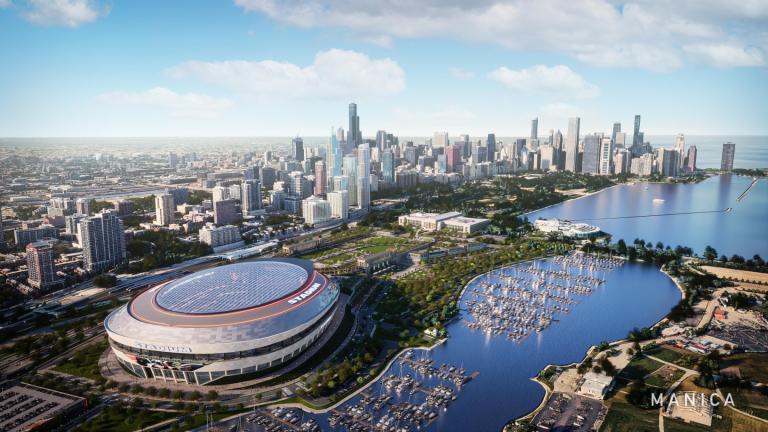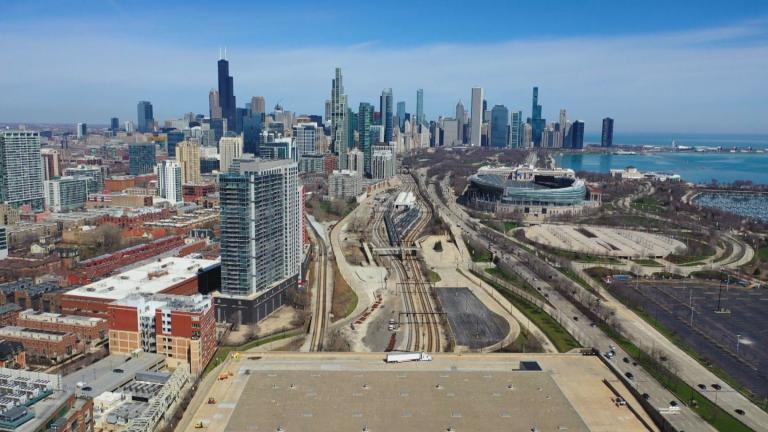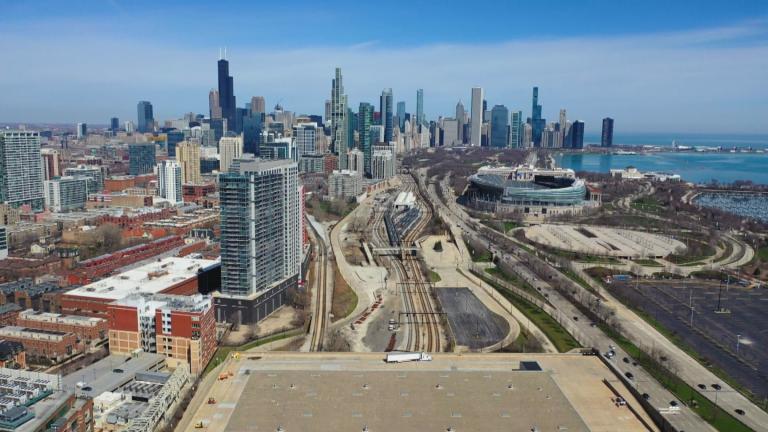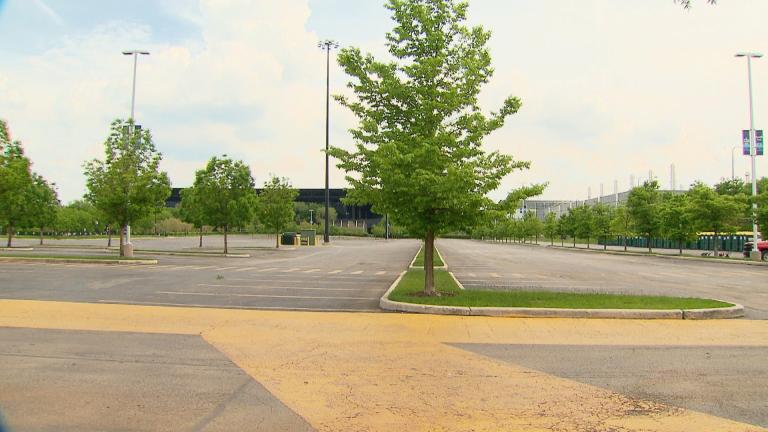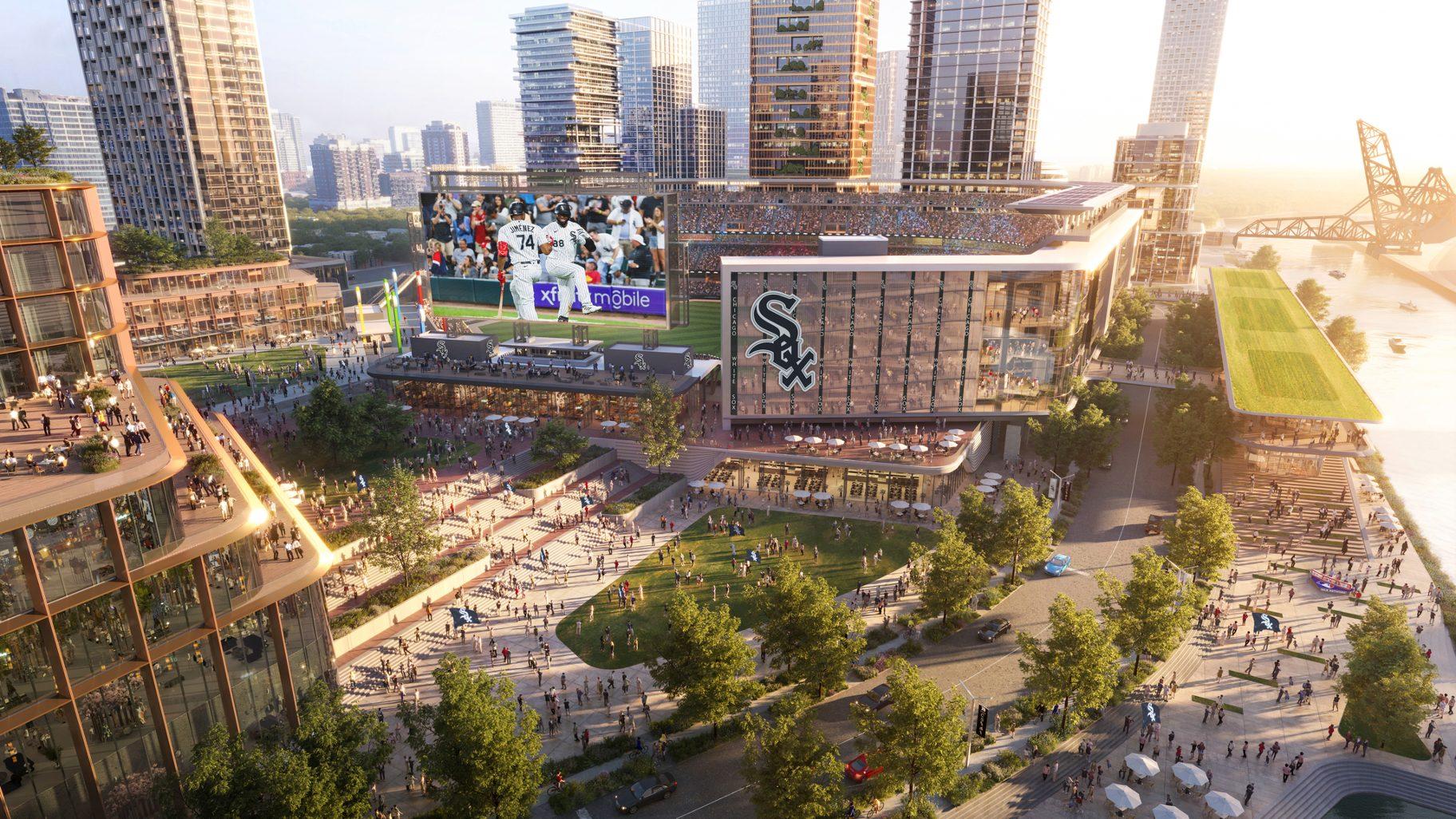 A rendering of a White Sox stadium at The 78 site with additional development. (Credit: Related Midwest)
A rendering of a White Sox stadium at The 78 site with additional development. (Credit: Related Midwest)
With taxpayers still “on the hook” for renovations that turned Soldier Field into a “spaceship,” former Illinois Gov. Pat Quinn said it should be up to Chicago voters whether they want to put more public funds into sports stadiums.
Quinn said he recently paid for a poll to gauge public sentiment, and results from the public opinion research company Blueprint showed 66% of respondents surveyed last week oppose subsidizing new stadiums for privately owned teams.
“But that’s a poll. The best poll is the one at the ballot box,” said Quinn, a Democrat who served as governor from 2009-2015. “I think it’s important to give everyday people in Chicago — the voters — a chance to vote.”
With cameras rolling, Quinn on Wednesday filed a referendum ordinance with the city clerk’s office he said he hopes Mayor Brandon Johnson and the Chicago City Council will move at their next meeting April 17.
Quinn said the campaign for mayor nearly a year ago centered on the public’s desire for transparency and that Johnson won with an emphasis on openness.
Quinn said he has yet to talk with Johnson or any alderpeople about his idea.
Should Quinn succeed, the nonbinding referendum would ask Chicago voters on Nov. 5, on the same ballot as the presidential contest: “Shall the people of Chicago provide any taxpayer subsidies to the Chicago Bears or the White Sox in order to build a stadium or a real estate development?”
The Chicago Bears have been in talks to build a new stadium along Chicago’s lakefront. The team would reportedly put in $2 billion, but taxpayer funds and agreements allowing a stadium on public land would also be required.
The team also owns 326 acres in Arlington Heights, on land that was formerly a horserace track, and has pursued the possibility of building a domed stadium there.
The White Sox last month pitched government leaders on a proposal to repurpose Guaranteed Rate Field in Bridgeport and to move the team’s home base to a new stadium that would be part of the fledgling mixed-use development The 78, at Roosevelt Road and the Chicago River, north of Chinatown.
The Sox’s current stadium and the early aughts renovations to Soldier Field were both carried out using bonding from the Illinois Sports Finance Authority that was backed by a municipal tax on hotel stays. The teams are reportedly eyeing extending the tax and bonds for the new round of potential projects.
Quinn said he’s a Chicago sports fan who wants the teams to do well.
“But we want you to put your own money into building your stadiums, not hit the taxpayers once again,” Quinn said.
Quinn had formerly attempted to put a referendum on the ballot before the 2002 rehab of Soldier Field, but a court order kept the measure off the 2000 ballot.
“There was kind of a, I would say, closed-door deal between the Bears to grab even the naming rights of Soldier Field,” Quinn said. “And they put the deal together, they didn’t want any voter participation or any referendum. And look what we’ve got. We’ve got now a spaceship that the Bears want to tear down and build something new at public expense.”
The former governor, an avowed populist whose catchphrase is “make the will of the people the law of the land,” successfully worked toward adding the 1980 “Cutback Amendment” to the state constitution, leading to a reduction in the size of the Illinois House from 177 members to 118.
But Quinn has also had a string of failures when it comes to getting referenda on ballots.
He was involved with a 1976 “Political Honesty” citizens’ initiative to put three ethics referenda before state voters. Judicial rulings kept those questions off the ballot.
More recently, his attempts in 2022 to protect Soldier Field’s name and to institute mayoral term limits did not successfully make it to Chicago ballots.
He’s currently working with state Rep. Ryan Spain, a Republican from Peoria, to try to persuade legislators to add a constitutional amendment question on the November ballot. The proposal would make it easier for Illinois residents to change the constitution on matters related to ethics. There’s been no movement in the General Assembly.
WTTW News sought comment from the mayor’s office, the Bears and the White Sox. None responded as of publication.
Contact Amanda Vinicky: @AmandaVinicky | [email protected]

